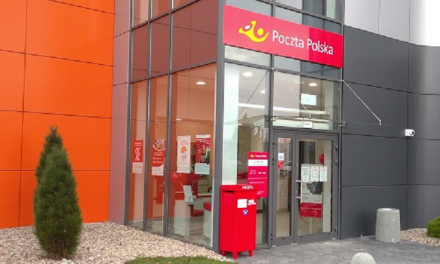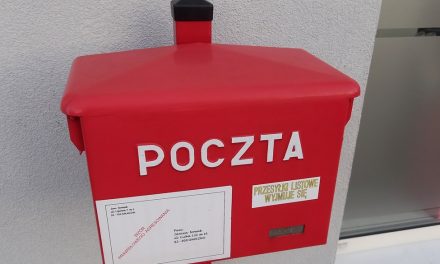
Poczta Polska to apply for commercialisation as prelude to stock market listing in 2006-2007
Poczta Polska, the state post operator, is to apply to the Treasury within the next few months to be commercialised, before it starts preparations for a stock market listing that could happen in 2006-2007, the company said last week. Poczta, which expects its sales to exceed ZL6 billion this year, is one of Poland's largest employers with a headcount of over 100,000. This number, said deputy director general Czeslaw Kowalski, is to be reduced through outplacement and early retirement. Poczta also aims to cut its fixed costs by 10-15 percent this year, as well as introduce new products. It will reduce the delivery time for money transfers to same or next day depending on the type of service, against the current delivery time of two days. Poczta delivers some ZL30 billion annually in 250 million transfers. To regain position on the parcel delivery market, where Poczta has lost ground to private operators, the company will introduce a new product ? a local parcel.
"Despite its sizeable technological and human potential, Poczta is not competitive on the parcel delivery market. Its market share is estimated at just 4.5 percent and falling," the Telecoms and Post Regulatory Office (URTiP) said in a September communique.
The company has also established a separate department for dealing with the 60 strategic clients that generate 34 percent of its revenues. New distribution centres will be developed in Bydgoszcz, Gdansk, Wroclaw, and Zabrze, said the company.
"Becoming a publicly listed company would be the best scenario for Poczta Polska," says Dominik Czajewski, the company's director for strategy, in an interview for Parkiet.
Czajewski led a team of Poczta employees, consultants, and legal experts charged with the task of defining the most favourable form of operation for the state-owned enterprise.
"We looked at the legal forms of other post operators. We also analysed the Polish and European legal environment, and the strengths and weaknesses of each legal form. The possibilities included a restructured state-owned enterprise, a sole-shareholder Treasury company, a limited partnership company, or a publicly listed joint stock company. We've eventually come to the conclusion that the latter option was the best. Raising capital, meeting the regulatory requirements, recruiting talented staff, gaining market share, and ensuring transparency ? all that would be easiest to achieve if Poczta went public."
Would the state be supposed to retain control?
"The best results are achieved when the state retains only a minority stake because political influence is always perceived by investors as a risk. Ultimately, however, we haven't recommended that."
Why?
"Because there are yet no fully privatised post operators anywhere in the world. There is the Dutch post, TPG, but the government holds a ?golden share' in it. It's possible, though, that such fully privatised post operators will emerge. There has been talk that the German government will leave itself only 35 percent in Deutsche Post, for instance."
Perhaps it would be worth to move ahead of others and privatise Poczta fully?
"That's very difficult to achieve even for restructured state enterprise, let alone for Poczta, which is only now implementing the necessary reforms. The cession of control has to be gradual. Floating Poczta fully today wouldn't make sense."
Because there wouldn't be demand?
"Because it'd be difficult to shape favourable expectations regarding the company's future value. Besides, our internal systems and regulations aren't yet in line with the Securities and Exchange Commission's requirements."
How long will it take Poczta to prepare itself for going public?
"We will be ready for commercialisation early this year. Preparing for a stock market listing would take another six to eight quarters. After that, it's political decision."
Poczta has been losing market share even in the mail delivery segment. Will investors be interested in a company whose market share is falling?
"Poczta is and will be losing share in the market for traditional postal services. But if it were really so that falling market share was a measure of a post operator's value, we'd be seeing the share prices of the German and Dutch post operators falling. Instead, they have been steadily rising, the rises interrupted only temporarily by overall bearish moods or fines imposed by regulators. Poczta is a large ?base' for growth in various directions. If we recruit the right talent and invest money in projects that have proved successful for other post operators, we can gain share and boost profits."
How?
"The postal ?base' can be used to provide many kinds of services, not only those related to delivery and logistics. Let's look at the letter value chain. It isn't only delivery itself. Any utility service provider, a telecom or a power distributor, before it mails the bill to the consumer, has to generate it. It designs its looks, prints, puts in an envelope, addresses, makes the preliminary sorting. It's still simple mail communication ? but so many new possibilities. That is a new market for us."
Other companies are already doing this.
"We know that. But it is a large, growing market where there's room for many. In the developed countries, B2C communication and direct marketing have been growing at double-digit rates. In Poland, advertisers still spend most of their budgets on ATL, whereas the developed countries have long switched to BTL. And that's the future ? putting the traditional services to new uses. Growth potential is immense here."
Is Poczta already preparing itself for that?
"We're currently dividing the company into business lines. The first line being established is that of postal services. Its purpose is to transform mail delivery into a prosperous business by introducing as many added services as possible. We also want to expand the scale of our business with the largest corporate clients who generate some 80 percent of our mail delivery sales."
What about financing?
"We estimate we'll need some ZL3.5 billion by end-2006. Most of that we have covered in retained profits and credit. These aren't the cheapest sources, but they're the only available ones for us today. We're allowed to issue bonds, but only unsecured ones, as the bill on state-owned enterprises prohibits us from pledging our assets. We'd like to change that with commercialisation."
What will happen with the subsidiaries Poczta has established to provide financial services, i.e. mutual insurance, leasing, pension fund, Bank Pocztowy?
"We'll continue developing these businesses. We're certainly not going to sell Bank Pocztowy. After all, banking penetration is the lowest in precisely those areas where we're the only player with a nationwide network. As far as the other business are concerned, all, except the mutual insurance company, have already been restructured and have been profitable since 2003. The mutual insurance business has been back to profit since the third quarter 2004."
"We'll certainly want to consolidate all the financial services subsidiaries into a single business line selling financial services through Poczta's outlet network."
What will be the effects of these changes?
"At this point, we can hardly talk of strategic management on the group level. The legal status of a state-owned enterprise doesn't allow us to shape the individual subsidiaries the way we'd want, like in a holding. Besides, the headquarters are dominated by postal services and they're what the management is chiefly involved in. Poczta should be divided into separate business lines that will be run by their own ?mini-boards.' The boards of the specific business lines will be deciding whether to grow organically, or whether to make acquisitions, and if so, then where and for how much. Poczta offers almost 300 products and services. A single executive committee is simply unable to devise and implement strategies for markets as diverse as postal services, parcel delivery, financial services, and so on. Let's take parcel delivery for example. Until now, top management have devoted only a fraction of their time to Pocztex. And the rivals ? DHL, Masterlink, Stolica ? have their own boards overseeing dozens of managers involved solely in delivery services. That's why, among other things, why their service offer is more attractive, and their customers enjoy better service quality."
What about life insurance?
"We're currently considering whether to start reselling some major insurer's products, thus limiting the risk involved, or establish our own life assurance business."
Western operators usually derive a third of their sales from postal services, a third from logistics, and a third from financial services. What are Poczta's targets?
"We're assuming that thanks to the pending restructuring Poczta's revenues will be growing by 7 percent annually. At this point, over 60 percent of our sales is generated by postal services. We want to boost the share of revenues from logistics and financial services, as well as from added services to letters and advertising materials, so that ultimately the traditional postal services generate no more than 35-40 percent of sales."
What could be Poczta's valuation in the context of the planned listing? Some sources have put its value at ZL1.6-2 billion.
"Such valuations have nothing to do with reality. They were made by applying the same multiples that are commonly used to value the western post operators. Yet Poczta's real estate assets alone are worth some ZL2-3 billion, so the whole company can hardly be worth less."
Who usually buys post operators' stock?
"It's usually long-term financial investors. I think Poczta Polska is a tasty morsel for them. It is a company with a huge hidden potential and annual sales of ZL6 billion, one that will be among the stock exchange's leading blue chips. Poczta is also a very well recognised brand, particularly in the countryside. That's why we hope to repeat the PKO BP scenario."













